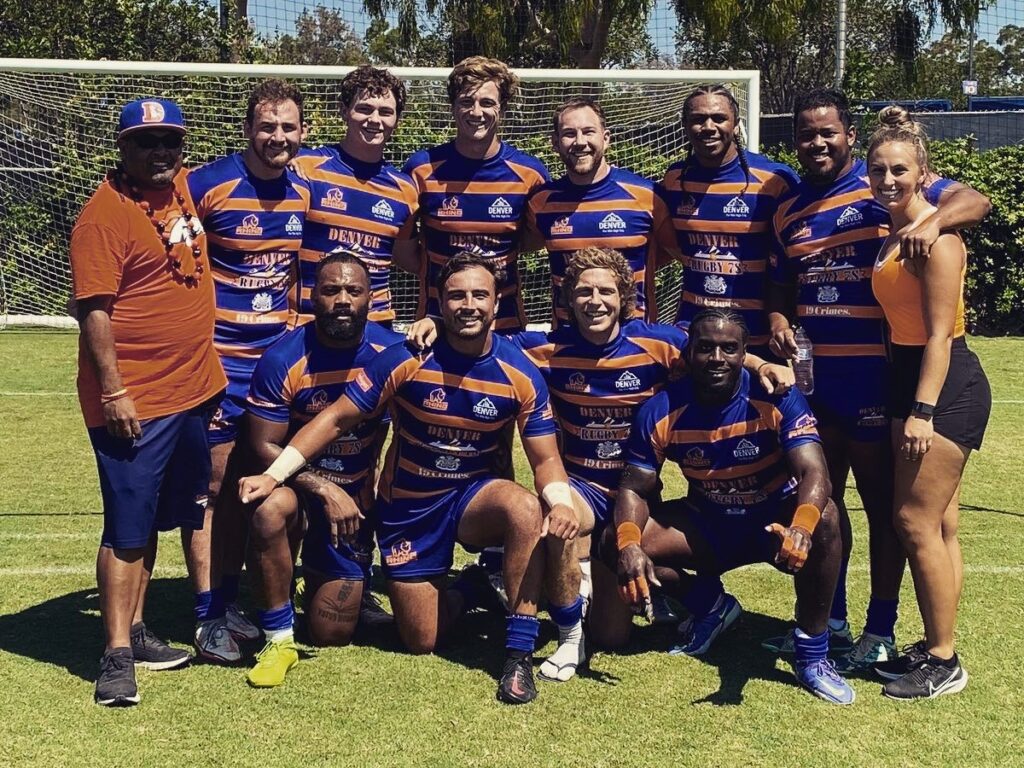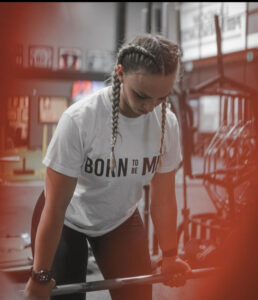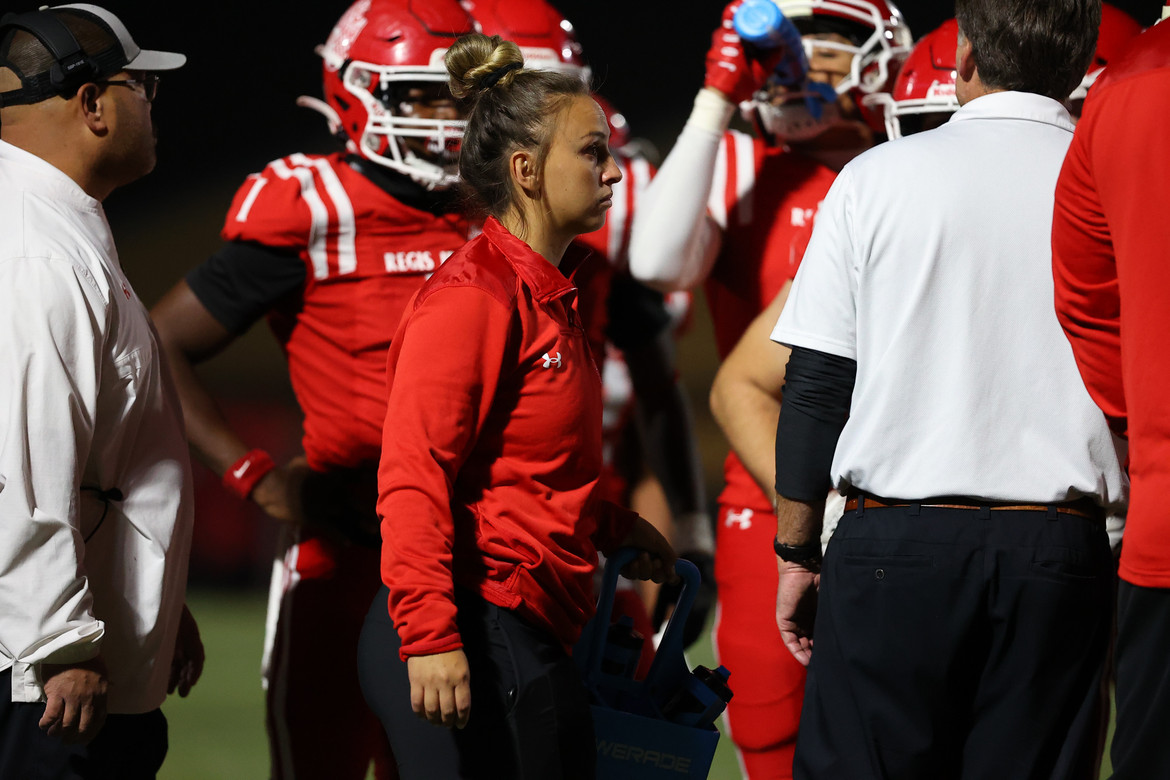Riglie Reeves, a student on the Setanta College MSc in Applied Sport & Exercise Psychology, is currently a Sports Performance Coach at Landow Performance and Director of Sports Performance at Regis Jesuit High School. Below, Riglie provides insight into her coaching approach, integrating sports psychology in physical performance and her career to date.
Background
Having been involved in sports from an early age, Riglie realised it was an area she wanted to stay involved in even if she wasn’t participating.
“This led me to pursue a career in health and performance, where I could work closely with athletes, particularly at higher levels of competition. The idea of helping athletes maximise their potential, both physically and mentally, is what truly drives me. Whether it’s through strength training, conditioning, or mental skills coaching, I’m dedicated to enhancing the performance of those I work with, ensuring they can compete at their best.”
Current Roles
At Landow Performance, Riglie has worked with and trained athletes from varied backgrounds including NFL, MMA,MLB, MLR, and Olympic athletes.
“I have provided expertise to many athletes in proper speed and movement, strength, and maximum potential. I have coached young athletes through early stages, to signing letters of intent with D1 and D2 schools. I have helped multiple athletes reach All-State and All-American then their sports. I have spent the last several years focusing on Rugby, and studying Rugby skills to be able to grow rugby players to their utmost potential. I have worked with former Olympic Rugby athletes, PR7’s and MLR athletes with off season programming.”
Alongside the role at Landow Performance, Riglie is Director of Sports Performance at Regis Jesuit High School which includes responsibilities such as “Advising athletes on weight training techniques specific to their sport. Development of healthy, technically sound, habit forming lifelong fitness. Work with athletes to decrease sports related injuries and enable individuals to enhance their overall athleticism.”

Approach to Coaching
“My approach to coaching is holistic and athlete-centered, combining both physical and mental training to optimize performance. I believe that every athlete is unique, so I tailor my coaching strategies to meet individual needs and goals. I focus not only on developing physical strength, speed, and endurance but also on enhancing mental resilience and focus. By creating a supportive and challenging environment, I encourage athletes to push beyond their limits while maintaining balance and well-being.
I’m committed to continuous learning and staying updated on the latest research in sport science and psychology to provide the most effective coaching techniques. Ultimately, my goal is to help athletes grow, not just as competitors but as individuals who are mentally strong, disciplined, and prepared to tackle any challenge on and off the field.”
This approach ultimately led Riglie down the sports psychology route.
“As a strength coach, I’ve always been closely connected with the athletes I work with, often becoming a trusted confidant when they face challenges or frustrations. Over time, I realised that their performance struggles weren’t always physical—many stemmed from mental barriers such as stress, anxiety, and a lack of confidence. This led me to pursue an MSc in Applied Sport and Exercise Psychology.
I wanted to equip myself with the knowledge and tools to not only improve their physical capabilities but also to support their mental well-being. My goal was to understand the psychological factors that influence performance and to develop effective strategies to help athletes overcome these obstacles. By integrating psychological principles with physical training, I aim to provide a more comprehensive approach to coaching, empowering athletes to enhance their mental toughness, resilience, and overall performance on the field.”
Sports Psychology and Coaching
Riglie believes sports psychology has had a significant impact in her own coaching.
“In my own approach, sports psychology has significantly shaped how I coach. Understanding the mental side of sports has made me more attuned to the psychological challenges athletes face, whether it’s dealing with performance anxiety, recovering from injuries, or staying motivated during tough training periods. I integrate mental skills training into my coaching routines, teaching athletes techniques such as visualization, goal-setting, and mindfulness to enhance their mental strength.”
She also outlines how it could be integrated into a performance plans.
“Sports psychology should be an essential part of an athlete’s training plan, working hand-in-hand with physical training. Mental skills like visualization, focus, and goal-setting can be practiced alongside regular workouts to prepare athletes for the mental demands of competition.
Regular one-on-one sessions to discuss goals and mental strategies can help athletes stay motivated and overcome challenges. It’s also important to create a supportive environment where athletes feel comfortable discussing any mental health concerns.”
 Studying with Setanta
Studying with Setanta
On studying with Setanta, Riglie outlines the benefits of being able to directly apply her learnings in her coaching practice.
“The most beneficial part has been gaining a deeper understanding of the psychological aspects of athletic performance. The programme provided me with practical tools and strategies that I can directly apply to my role as a strength coach. I’ve been able to integrate mental skills training into my coaching, helping athletes improve not just their physical strength but also their mental resilience. This holistic approach has enabled me to better support my athletes, ensuring they are well-prepared both mentally and physically to perform at their best.
Advice for Coaches
“It’s important to understand that while the victories and successes are fulfilling, the real work often lies in the tougher moments. You’ll spend a lot of time guiding your athletes through setbacks, disappointments, and struggles. It’s during these times that your role as a coach becomes most crucial.
My advice to aspiring coaches is to be prepared for the emotional highs and lows that come with the job. Coaching isn’t just about celebrating wins; it’s about being there for your athletes when things don’t go as planned. You’ll need to be patient, resilient, and compassionate, offering unwavering support and guidance.”
Learn more about the MSc in Applied Sport & Exercise Psychology here.


Leave A Comment